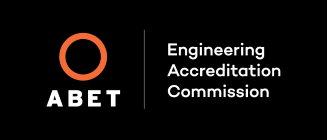Textile Engineering
Who is Textile Engineer?
The engineers graduated from Textile Engineering Department are equipped with the knowledge of the behavior of textile materials and the functions of machinery in textile and clothing technologies. They also have strong basic engineering knowledge, analytical thinking and problem solving skills, understanding of their professional and ethical responsibilities, high level of communication skills and they can renew themselves with their investigating character.
They are employed in departments of textile plants and companies varying from small to big scale, i.e., production, planning, quality control, sales or marketing or in agencies of domestic or foreign companies for textile products and textile machinery, concentrated in different regions of Turkey. The graduates who wish to carry out their further studies are successfully accepted by national and international graduate schools.
Our Textile Engineering Program is accredited by Engineering Commission of ABET, www.abet.org for the second time and this time it is a full ABET accreditation (for 6 years) starting from June 2011.
circa. 70 students are enrolled each year to the program all over Turkey and the world.
In 2015-16; 72 students ( 7 of them are from abroad) have been enrolled to the program.
Textile Engineering Department Presentation
Textile Engineering Department Brochure
Vision and Mission
Vision of the Department of Textile Engineering
To continue to be a leading institution, providing an education and conducting research at the international level within the fields of textile engineering and related areas, and serving the society with Science and Technology in line with the national needs.
Mission of the Department of Textile Engineering
Through providing contemporary education and research & development opportunities at the international level, to educate pioneer and creative textile engineers, fashion designers and textile marketing associates who can employ their professional knowledge and skills to meet the requirements of and contribute to humanity, society and industry, and keep updated with scientific and technological developments, and who are conscious of the social, ethical and economical aspects and responsibilities of their profession, and to serve in advancing national and industrial developments through basic, applied and multidisciplinary researches within the fields of textiles.
Program Educational Objectives
The program educational objectives reflect the needs of our constituencies and have been reviewed and validated by our constituents. (15/12/2010)
In this context;
1. Our graduates will manage textile production processes and identify and solve textile engineering problems.
2. Our graduates will take effective roles in the organization of textile businesses both globally and locally.
3. Our graduates will perform multidisciplinary design activities that result in desired textile-based products, systems, or processes that support care of the environment and health and that provide economy, wealth, and quality.
4. Our graduates will engage in both life-long learning and continuous self improvement, follow scientific and technological developments, and initiate or conduct research and development activities in the field of textile engineering.
Student Outcomes
In order to achieve the Program Educational Objectives the graduates of the Textile Engineering Undergraduate Program must have:
a. An ability to apply knowledge of mathematics, basic sciences and basic engineering to modeling and solving engineering problems
b. An ability to design and conduct experiments, as well as to analyze and interpret data in the fields related to textile engineering
c. An ability to design a textile system, component, product or process to meet certain desired needs within realistic constraints and conditions such as economic, environmental, social, political, ethical, health and safety, manufacturability, and sustainability
d. An ability to function on multi-disciplinary teams
e. An ability to identify, describe, formulate, and solve textile engineering problems
f. An understanding of professional and ethical responsibility
g. An ability of effective verbal and written communication in Turkish and English
h. The broad education necessary to understand the impact of textile engineering practices in a global, economic, environmental and social field
i. A recognition of the need for life-long learning, an ability to access to knowledge and to pursue developments in science and technology, an ability of continuous self improvement and critical thinking
j. A knowledge of contemporary issues complementing business life and concerning sectors including textile engineering practices
k An ability to use the techniques, skills and modern engineering tools necessary for engineering practice; an ability to use information technologies effectively
Course Plan
70-30% Turkish/English Course Plan
100% English Course Plan
Association of Universities of Textiles (AUTEX)

- Our Textile Enginneering Department is a member of AUTEX since November 2006.
- Autex stands for the Association of Universities for Textiles.
- This is an interdisciplinary organisation grouping together universities with established international reputations in textile education and research. It was founded in 1994.
- The AUTEX Association consists of members within Europe (within and outside the European Union) and beyond, including the USA.
AUTEX mission statement :"To facilitate co-operation in high level Textile Education and Research".
For more information: www.autex.org
Annual Enrollment and Graduation Data
Enrolled Student Numbers
2016-2017 ; 61 students have been enrolled to the program.
2016- 2017; total number of enrolled student is 446 (100% English Course student number: 398 and 30% English Course student number; 48)
Graduated Student Numbers
2015-2016; 55 students
2014-2015; 43 students
2013-2014; 42 students
17 students in fall semester, 28 students in spring semester, 10 students in summer semester and in total 55 students graduated from Textile Engineering Undergraduate Program in 2015-2016 academic year.
Textile Engineering Undergraduate Program (Brochure)
Textile Engineering Undergraduate Program (Accreditation)

ITU Textile Engineering Undergraduate Program: Accredited by the Engineering Accreditation Commission (EAC) of ABET, www.abet.org, (Criteria: Textile Engineering).